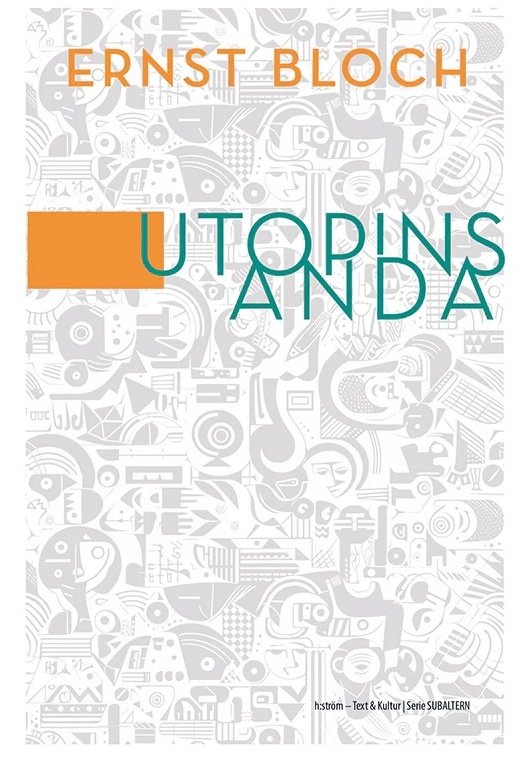Podemos’ Failure: The Inadequacy of “Hegemony”
/Recent regional elections in Galicia and the Basque Country have confirmed the waning of political support for Unidas Podemos. As Jorge Lago, a co-founder and by now former member of the party, has intimated, Unidas Podemos is now in a position similar to and potentially worse than that of United Left (IU) before 2014, that is, in a rather remote fringe of the political system with a relatively faithful but steadily marginal following. Since Unidas Podemos has absorbed United Left, this result is dismally poor: six years after the founding of the party there is no progress to be seen in terms of a general social commitment to systemic political and economic change.
The party was formed in the wake of the indignados movement (2011-12) with the idea of challenging, and enacting a thorough transformation of, the political system that came into existence after 1978 and the Spanish transition to democracy. There was a moment, in 2014, when they could enthusiastically claim to be the top national party in terms of declared voting intentions, but, given their continuous decline, it is now perhaps safe to state that Podemos (the party’s original name) has largely failed so far in its historical mission. There is no joy in saying this. Although it is true that Unidas Podemos governs today in coalition with the much stronger Socialist Party, and that the party secretary Pablo Iglesias is both a Vice President and the Minister of Social Rights in Moncloa, it is hard to argue, witness the regional elections and their massive loss of votes in both autonomous regions, that they have successfully taken advantage of their co-governing position. In a way, Iglesias today incarnates the position of a minor Rex [qui] regnat et non gubernat.
How can the spectacular political downfall of Podemos be explained? For years to come, political scientists and historians alike will debate the various causes and factors that contributed to their unsuccessful political bid, but we would like to make the case that their decline is not just contingent on specific problems of leadership, the course of historical events, or the deepening social fragmentation and disorientation of society – all of these are secondary factors, to be sure. But there is something else: their political-theoretical groundwork was inadequate from the very start. Podemos’ failure is also a failure of theory.
Framing themselves as a populist party emerging from the 15M (indignados) waves of social protest against austerity and precarization, Podemos maintained that the theory of hegemony, as conceptualized by political thinkers Ernesto Laclau and Chantal Mouffe, together with the theory of populism Laclau proposed in the early 2000s, which incorporates hegemony theory, were the best and only model to translate radical social demands into a transformation of the political status quo. Furthermore, they believed that hegemony, in the Laclau-Mouffe theorization, offered a path toward a new common sense capable of regaining the commitment to democracy that had been abandoned by the establishment elites, including the socialists. They never thought about specific Spanish conditions, where the complexities of political life were bound to make their theory, in spite of its original brilliance, a largely unusable corset.
As Lago argues, the original Podemos had a clear (but, alas, all-too-clear) design for the construction of a counter-majority capable of interlacing territorial specificities within a general national-popular project. They never wondered whether their hegemony framework could lead them towards a concrete realization: they took it for granted through their celebratory slogans concerning mediatic hyper-leadership and the equivalential construction of “the people.” The hegemonic hypothesis, predicated on popular unity, and dependent on the linking together of popular demands under authorized command, and in the face of a radical antagonism against the ruling casta, was effectively and also clumsily used to neutralize internal conflicts and dissent within the party while, at the same time, disregarding institution-building and a solid and plural organization on the ground. They were for democracy, but it was a particular kind of democracy. Laclau and Mouffe’s equivalential chains ended up being the chains of those willing to serve under Iglesias (or, alternatively, under Íñigo Errejón, second in command).
Leaving aside the grievous (and, for many, unpardonable) mistake of refusing to facilitate a socialist government after the 2015 elections, the zenith of such political errancy was seen during the second congress of the party in Vista Alegre in the Spring of 2017, where the overriding principles of “unity” and “consensus” decreed by Pablo Iglesias obstructed any possibility of internal reforms, like those proposed by Íñigo Errejón, who rather timidly and all-too-respectfully advocated internal pluralism, institutional permeability, and an inclusive social transversality.
After 2017 Podemos lost its commitment, perhaps even its capacity, to undertake the necessary process of “slow learning” and careful attention to reality that political philosophers like José Luis Villacañas were recommending – opting for a political vision rooted in vertical leadership, internal authoritarianism, and precarious (and precariously opportunistic) political alliances in the autonomous regions that crumbled everywhere over time.
While Errejón, Podemos’ second most important leader at the time, and his errejonismo had the potential force to reform Podemos, their minoritarian political position today also speaks to the shortcomings of the hegemony principle that still frames, stubbornly and against all evidence, their political practice. Errejón had at least two opportunities to move away from Podemos’ hegemonic model: first in the Vista Alegre Congress of 2017, when he was soundly defeated by the Iglesias party wing, and then later in 2019 when creating a political platform in alliance with the Spanish Green Party (EQUO), Más Madrid, which ended up losing the government of Madrid to the Popular Party (PP). Since then, errejonismo, retrenched in its theoretical stubbornness, has also given up on a national political vision, favoring instead an ecological rhetoric in conjunction with territorial nationalist allies. The fact that errejonismo has chosen a bunker-like strategy speaks not only to the lack of institutional vision inherited from the experience of Podemos. It also makes explicit a defensive position ultimately based on vague ideals of order, popularism, and regional sovereignties, as if they were destined to preserve themselves as the reserve army of a future left.
If for Unidas Podemos hegemony, in a fallen application of Laclau’s general theory, works as an apparatus to name and then represent fidelity to the central leadership, the very same principle of hegemony serves errejonismo as a catch-all political response for a recomposition of the left in better and more democratic times, and under improved conditions. But they will not happen, or not for them. In an increasingly fragmented social order, the theoretical closure of hegemony which informs the political praxis of this progressive group amounts to paralysis. The limits of Laclau’s general theorization at the level of effective politics have operated as radical fetters and blinders that have largely destroyed Podemos’ initial political force and will not do much to restore Más Madrid or errejonismo to any particularly promising place.
For years we have suggested that, given that hegemony theory, while a brilliant descriptor of political action in general, is an inadequate and insufficient principle to organize society along the lines of thorough democratization based on equality, it was necessary to think beyond hegemony. As journalist Lucía Méndez has reminded us recently, the notion of posthegemony (in particular in the version theorized by Jon Beasley-Murray) was closer to some important aspects of the initial spirit of Podemos, those more organically linked to the 15M movement, but it was quickly abandoned in favor of a so-called latinoamericanización of Spanish politics, that is, in favor of a bid for national-popular construction which is the main referent for Ernesto Laclau’s theory of populism.
There is also a concomitant and perhaps ultimately deeper turn towards a pedagogical Gramscianism, which has the merit of recognizing certain limitations of Laclau and Mouffe’s reductive theory but moves towards a kind of long march of history that probably has no immediate political application. The emphasis on think-tank venues for militant formation (the Gramscian “self-disciplining” of the worker who prepares for the deployment of historical law) is another aspect of a pedagogical component in the new political culture that seems outdated and ultimately counterproductive.
At any rate, for all of these designs to have a real political chance, a new operational framework needs to be adopted, in particular if there is an interest in avoiding the shortcomings of recent years, which may have paradoxically become too cozy for too many already (it is good to have a niche, you can live in the niche). A posthegemonic operationalization of democratic practice does not amount to a political doctrine or to a new civilizational concept. It is to be used as an indicator of political practice that should favor the production of dissensus, and the subsequent negotiation of conflict in view of an egalitarian symbolization, in a rapidly fragmented society that can and will no longer depend on the establishment of hegemonic principles for social cohesion. Far from being a condition of the creation of the people, that unifying horror is very precisely what the people do not want, and have already refused, for anybody with good ears to hear.
To conclude, Lago is correct in stating that both the economic crisis and the coronavirus emergency have confirmed the “limits of neoliberal hegemony.” We should also extend this thesis to the inadequacy of the concept of hegemony itself, which has proven time and again incapable of amending the fractures of democracy beyond the mere temporary conquest and haphazard administration of state power, as we have seen in the experience of many Latin American pink-tide governments. Hegemony theory in the hands of a few self-appointed organic intellectuals, when used as the preferred model for political practice, cannot do much except serve as a lever for a politically invested (and theoretically indoctrinated) metropolitan class. The decline of Podemos reveals an important lesson: if progressives are to have a chance to create long lasting social change, they must go beyond hegemony, which is a concept that ultimately belongs to the twentieth century grammar of militant politics and is unfit to navigate the heterogenous nature of all too complex contemporary societies.
Gerardo Muñoz and Alberto Moreiras
































